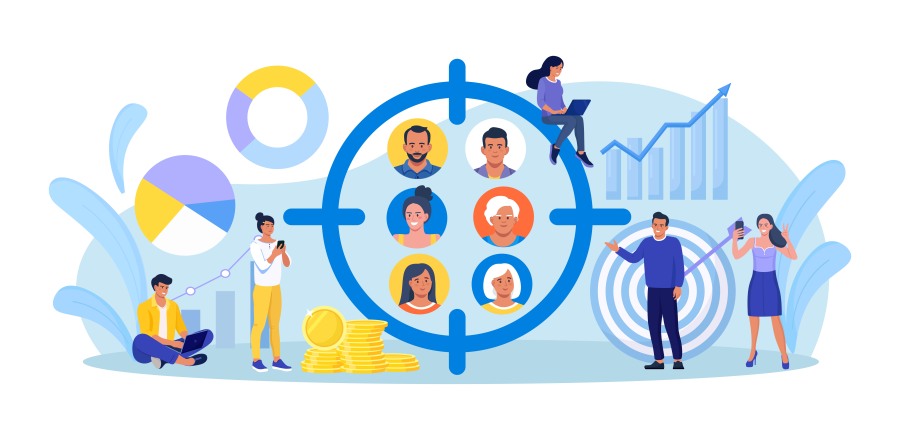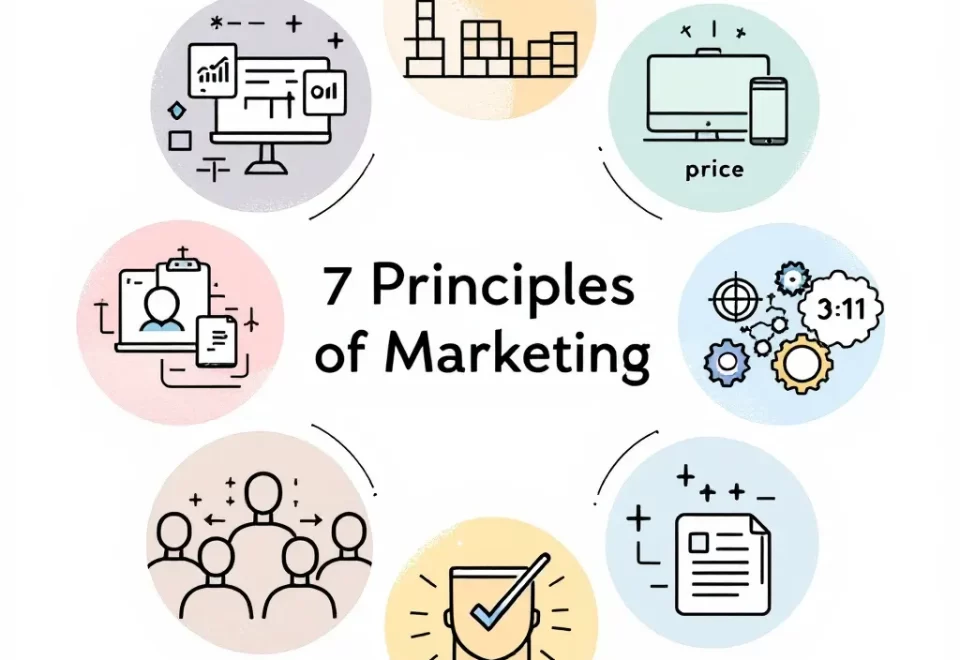As a business owner, you know that effective marketing is essential to your company’s success. You also know that there are many different aspects to marketing and that SEO (search engine optimization) is one of the most important. But what exactly is SEO, and how can you ensure that your website is optimized for maximum visibility and traffic? This guide will discuss eight essential SEO benchmarks you should know and monitor.
What is SEO?
SEO stands for “Search engine optimization.” It is the process of improving the visibility and ranking of a website or web page in search engine results pages (SERPs).
There are two main types of SEO: on-page SEO and off-page SEO. On-page SEO refers to optimizing the content and structure of a website to improve its ranking in search engine results pages. Off-page SEO refers to optimizing the visibility and authority of a website by building links from other websites. When your SEO performance improves, your website’s visibility and ranking in SERPs also increase so. In the google search console, you can monitor your website’s SEO progress and get insights on improving your SEO performance.
The Importance of SEO
Unlike paid search ads, which are displayed at the top of SERPs regardless of their relevance to the user’s query, organic results are only displayed if they are relevant to the user’s search query. This makes SEO a critical part of any digital marketing strategy.
Following are some of the benefits of SEO.
Improved website visibility
One of the main benefits of SEO is improved website visibility. Your website needs to be visible to potential customers if you want them to find and purchase your products or services. SEO can help you improve your website’s visibility in SERPs, making it more likely that potential customers will find and engage with your business. In google analytics, you can monitor your average position, which will give you an idea of your website’s visibility in SERPs. Suppose your SEO strategy works, and you can achieve the first position for a particular keyword. This will increase your website’s traffic as users are more likely to click on the first result in SERPs.
Higher conversion rates
When you improve your SEO, you will also improve your conversion rates. This is because organic traffic typically converts better than any other type of traffic. If you are not ranking well, you are likely missing out on many potential conversions. As search engine optimization is about improving your visibility and ranking, it stands to reason that this would lead to more conversions.
Improved brand awareness and credibility
Your brand will also become more visible when you rank higher in search results. This can help to improve brand awareness and credibility, as people will see your brand associated with certain keywords and topics.
If you can get your brand mentioned in news articles or featured on popular blogs, this can also help to improve your credibility. As users see your brand mentioned in these places, they will begin associating it with certain keywords and topics, which can help you rank higher for those keywords.
Increased ROI
In business, ROI stands for return on investment. The higher you rank in search results, the more traffic you’re likely to get and the more leads and sales you’re likely to generate. This can all lead to a higher ROI for your business.
Greater insights into customer behavior
When your organic traffic grows, it’s a good sign that your SEO is on the right track. However, you shouldn’t rely on this trend to continue indefinitely. To truly gauge the effectiveness of your SEO, you need to take a closer look at how people interact with your website once they reach it.
There are several ways to do this, but one of the simplest is to use Google Analytics. This service provides a wealth of data about your website traffic, including where it’s coming from, what pages people visit, how long they stay on your site, and what actions they take. Suppose your goal is to get people to sign up for your newsletter. In that case, you’ll pay close attention to the percentage of visitors who reach your newsletter sign-up page and the number of people who end up subscribing.
Do you want to start tracking essential SEO benchmarks efficiently?
Contact Growth Hackers
Better customer engagement
When your SEO is working well, you’ll see more traffic coming to your website and higher levels of engagement. This means people will stay on your site longer, interact with your content, and be more likely to take the actions you want them to (such as signing up for your newsletter or making a purchase).
Cost-effective marketing strategy
Organic traffic is the most cost-effective way to bring new visitors to your website. Unlike paid advertising, which can be expensive, SEO is completely free (Cost-free, not time-free of course). You may need to invest some time and effort into getting it started, but once you do, you’ll be able to enjoy the benefits for as long as you keep your site running.
8 Essential SEO Benchmarks
Now that you know some of the benefits of SEO let’s look at eight essential SEO benchmarks you should be tracking.
1. Rankings
The first and most obvious benchmark is your website’s position in the SERPs for your target keywords. You’ll want to track both your overall rankings and your rankings for individual keywords. Suppose your organic search traffic is down. In that case, you can check your rankings to see if you’ve fallen in the SERPs and identify which keywords you’ve lost ground on. As your SEO campaign performance improves, you should also see your rankings improve. When benchmarking SEO performance, it’s essential to use the right tools. The Ahrefs tool is a great way to track SERP changes, and Google Search Console can help you track your website’s progress in the SERPs over time.
2. Traffic
While rankings are a good indicator of SEO success, traffic is what matters. After all, the whole point of SEO is to drive more traffic to your website. You’ll want to track your overall organic traffic and the traffic from individual keywords. This will help you identify which keywords drive the most traffic and conversions and where you need to improve. When search engines change their algorithms, you might see a drop in traffic. By tracking your traffic, you can determine whether the changes have positively or negatively impacted your SEO.
3. Click-Through Rate (CTR)
Your CTR is a good indicator of how well your website and keywords perform. It measures the number of people who click on your listing in the search results compared to the number of people who see it. A high CTR means that your listing is relevant and appealing to searchers. A low CTR could mean that your listing is not as relevant or that it’s not appearing in the search results for some reason. Either way, tracking your CTR to improve your rankings and organic traffic is important.
4. Dwell time
Dwell time is the amount of time a searcher spends on your website after clicking on your listing in the search results. It’s a good indicator of the quality of your website and its ability to provide the information that searchers are looking for. If searchers quickly click back to the search results, it’s a sign that they need help finding what they were looking for on your website. On the other hand, if searchers spend a lot of time on your website, it’s a sign that they find your website useful and relevant. Either way, tracking your dwell time to improve your website and SEO is important.
5. Domain Authority (DA)
Domain Authority is a metric developed by Moz that measures the strength of a website’s domain. It’s a good indicator of your website’s ability to rank in the search results. The higher your DA, the more likely you are to rank well in the search results. However, it’s important to note that DA is not a direct ranking factor. It’s a good way to measure your website’s overall SEO health. Suppose your website has a DA of 50 and your competitors have a DA of 40. All other things being equal, your website is more likely to rank higher in the search results. However, if your competitor’s website has a higher DA, you can still outrank them. Many other factors come into play when determining who will rank higher in the search results.
6. Backlinks
Backlinks are links from other websites to your website. They’re a good indicator of the popularity and quality of your website. The more backlinks you have, the more likely you rank well in the search results. However, it’s important to note that not all backlinks are created equal. A link from a high-quality website is worth more than a link from a low-quality website. A link from a relevant website is also worth more than a link from an irrelevant website. So, when tracking your backlinks, it’s important to look at the quality and relevance of the websites linking to you. Usually, when keyword rankings drop, it can be for various reasons. Sometimes it’s due to an algorithm update, and sometimes, it’s because of a change in your website. And sometimes it’s because of a change in the websites linking to you.
Rank higher in search engines by utilizing the most important SEO benchmarks today!
7. Event Categories and Actions
If you’re running an eCommerce website, it’s important to track the event categories and actions taking place on your website. Event categories are the different types of events that can take place on your websites, such as product views, add-to-cart events, and checkouts. Actions are specific events within a category, such as a product view, add to cart or checkout. By tracking these events, you can see which event categories and actions drive the most conversions on your website. This information can be used to improve your website design and user experience.
8. Total Indexed Pages
The total number of pages indexed by Google is a good indicator of the health of your website. If your website has a lot of pages that Google does not index in google search results, then it’s likely that there are some problems with your website. This could be due to duplicate content, thin content, or other technical issues. You can ensure that Google is properly indexing your website by monitoring the total number of indexed pages.
These 8 SEO benchmarks are the most important to track among the SEO metrics. As SEO benchmarking is constantly changing, it’s important to keep up with the latest trends.
Final Words on SEO Benchmarks
To wrap up, these 8 SEO benchmarks are essential for any business that wants to rank higher in search engines and drive more traffic to their website. You can improve your website’s performance and ROI by tracking and monitoring these metrics. If you need help figuring out where to start, contact a reputable SEO agency or consultant that can help you get started.
We hope this blog helped you understand the importance of SEO benchmark. And if you have any further queries, feel free to reach out to us. We will be more than happy to assist you!
Growth Hackers is a top B2B SEO agency helping businesses from all over the world grow. There is no fluff with Growth Hackers. We help entrepreneurs and business owners track essential SEO benchmarks, increase their productivity, generate qualified leads, optimize their conversion rate, gather and analyze data analytics, acquire and retain users and increase sales. We go further than brand awareness and exposure. We make sure that the strategies we implement move the needle so your business grow, strive and succeed. If you too want your business to reach new heights, contact Growth Hackers today so we can discuss about your brand and create a custom growth plan for you. You’re just one click away to skyrocket your business.








